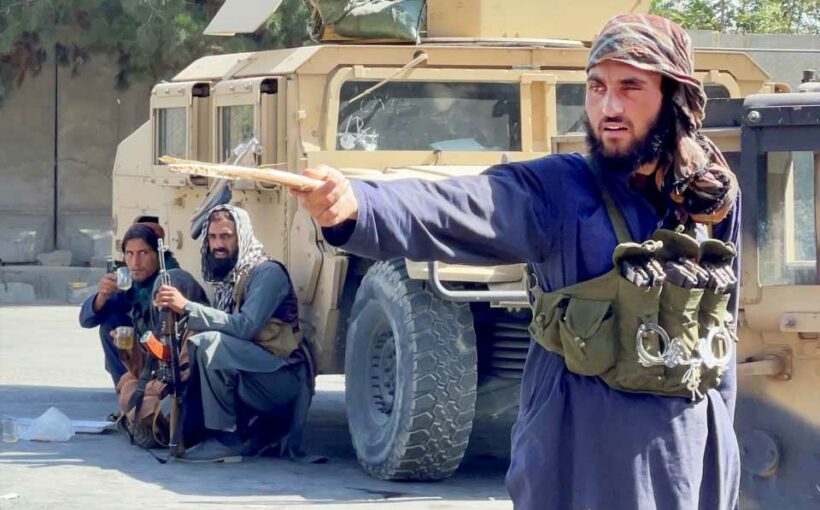- Secretary of Defense Lloyd Austin said Wednesday that it was not yet clear what kind of relationship, if any, the Pentagon would have with the Taliban in Afghanistan.
- "It's hard to predict where this will go in the future with respect to the Taliban," Austin said when asked about the next steps following Monday's complete U.S. military departure from the country.
- When asked at the State Department if the U.S. would recognize the Taliban as a legitimate government, under secretary for political affairs Victoria Nuland also said it was premature to say.
WASHINGTON – Secretary of Defense Lloyd Austin said Wednesday that it was not yet clear what kind of relationship, if any, the Pentagon would have with the Taliban in Afghanistan after Western forces spent 20 years fighting the Islamist militant group.
"It's hard to predict where this will go in the future with respect to the Taliban," Austin told reporters at the Pentagon when asked about the next steps following Monday's complete U.S. military departure from the country.
"We don't know what the future of the Taliban is," explained Chairman of the Joint Chiefs of Staff U.S. Army Gen. Mark Milley.
"I can tell you from personal experience that this is a ruthless group from the past and whether or not they change remains to be seen," Milley said, adding that he and Austin both fought against the group during their military careers.
"And as far as our dealings with them at that airfield, or in the past year or so, in war, you do what you must in order to reduce risk to mission and force, not what you necessarily want to do," Milley explained when asked about U.S. and Taliban coordination in the final days of an immense humanitarian evacuation mission.
The U.S. coordinated with the Taliban during the war's final days to ensure safe passage for U.S. citizens and Afghan nationals to Hamid Karzai International Airport for evacuation. However, there were reports that the Islamist militants blocked some Afghans from reaching the airport contrary to their public statements.
When asked at the State Department if the U.S. would recognize the Taliban as a legitimate government, under secretary for political affairs Victoria Nuland said it was premature to say.
"Our relationship with the Taliban will be guided by what they do not by what they say," Nuland began. "Now that said, there are some urgent questions, like the humanitarian condition of the people of Afghanistan. So we are looking at those kinds of things," she added.
"But we have made no decisions about any of the rest of it, and we certainly won't unless and until we see the kinds of behavior expected," Nuland said.
The remarks from the highest levels of the Defense and State Departments come one day after President Joe Biden defiantly defended his decision to withdraw U.S. forces from Afghanistan.
"When I was running for president I made a commitment that I would end this war, and today I have honored that commitment. It was time to be honest with the American people; we no longer had a clear purpose in an open-ended mission in Afghanistan," Biden said Tuesday from the White House.
"This decision about Afghanistan is not just about Afghanistan, it's about ending an era of major military operations to remake other countries," the president added.
With its troops now gone, the U.S. will have to rely on diplomatic engagement with the Taliban to guarantee safe passage out of Afghanistan for the Americans who remain and Afghans who worked for the U.S.
Biden in his Tuesday address said that "90% of Americans in Afghanistan who wanted to leave were able to leave." Less than 200 Americans remain in the country, according to the State Department.
The president said the U.S. will hold the Taliban accountable for guaranteeing safe passage to anyone who still wants out of Afghanistan.
The U.S. and NATO launched their military campaign in Afghanistan in October 2001, weeks after the 9/11 attacks. The Taliban at the time provided sanctuary to al-Qaeda, the terrorist group that planned and carried out the devastating attacks on the World Trade Center and the Pentagon.
About 2,500 U.S. service members have died in the conflict, which also claimed the lives of more than 100,000 Afghan troops, police personnel and civilians. The wars in Afghanistan, Iraq and Syria have cost U.S. taxpayers more than $1.57 trillion collectively since Sept. 11, 2001, according to a Defense Department report.
Source: Read Full Article
